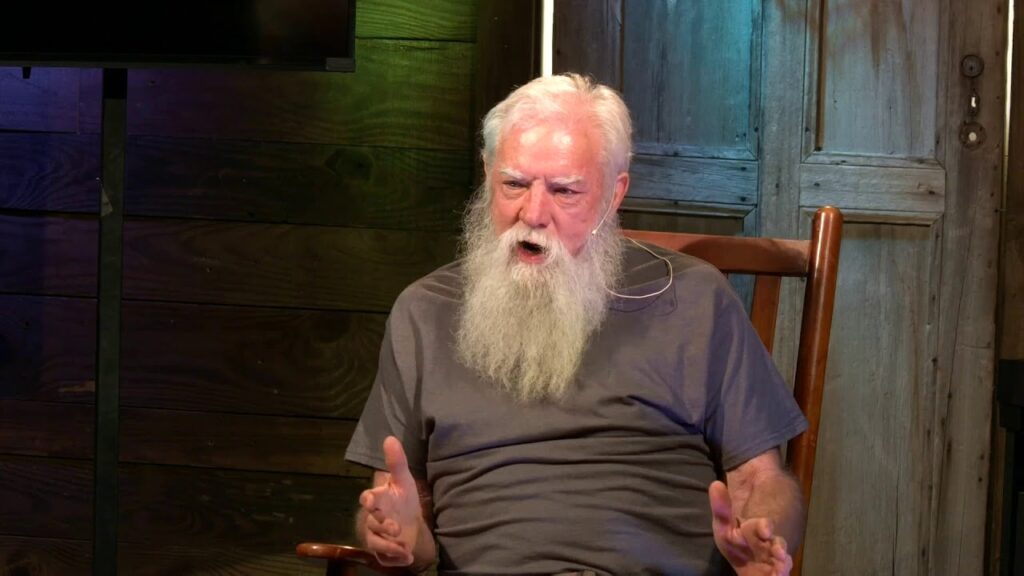In this video by The Door, Michael Pearl tackles the question: Is cremation biblical, or only burial? He delves into the topic by referencing a passage from the Bible in First Samuel 31:12 where the body of Saul and his sons were cremated. The discussion also addresses concerns about resurrection and the practicality of burial practices in different cultures.
As Michael Pearl reflects while sitting in his rocking chair, he provides insights into the biblical perspective on cremation versus burial. He mentions the cultural differences between cremation and burial practices and highlights the significance of the form of burial in the eyes of Jesus. With a friendly and informative tone, the video aims to shed light on a topic that generates questions and discussions among viewers.
Overview of Cremation in Different Cultures
Cremation in Western Culture
In Western culture, cremation has become increasingly popular in recent years as an alternative to traditional burial practices. It is seen as a more environmentally friendly option, as it does not require the use of land for graveyards. Cremation typically involves the body being placed in a cremation chamber where it is exposed to high temperatures, reducing it to ashes. These ashes can then be kept in an urn or scattered in a meaningful location.
Burial in Eastern Culture
In contrast, many Eastern cultures, such as those in Asia and the Middle East, have a deep cultural and religious connection to burial practices. In these cultures, the body is typically buried in the ground with specific rituals and ceremonies to honor the deceased. Burial is seen as a way to show respect for the deceased and to ensure their journey to the afterlife.
Biblical References to Cremation
First Samuel 31:12 – Saul and His Sons
The Bible provides some references to cremation, one notable example being in First Samuel 31:12, where Saul and his sons are cremated. This passage shows that cremation was practiced in ancient times, even by prominent figures. This raises the question of whether cremation is acceptable according to biblical teachings.
Discussion on Resurrection Concerns
One common concern raised about cremation is the belief in the resurrection of the dead. Some people worry that if their bodies are cremated, it may hinder their ability to be resurrected. However, biblical references, such as the promise of the Dead in Christ rising first, suggest that God has the power to reconstitute the body regardless of how it was disposed of after death.

Historical Context and Practicality of Burial vs Cremation
Use of Firewood for Cremation
Historically, cremation required a significant amount of firewood to burn a human body completely. This practical consideration played a role in determining burial practices in different regions. In areas with limited wood resources, burial became the preferred method due to its practicality and efficiency.
Geographical Factors Influencing Burial Practices
Geographical factors also influenced burial practices. In regions with abundant firewood, such as the timberlands in the north, cremation was more feasible. However, in areas with scarcity of wood, burial was a more practical and sustainable option. These historical factors shaped the cultural practices surrounding death and burial.
Importance of Burial Practices in Biblical Times
Luke 9:59 – Let the Dead Bury the Dead
In Luke 9:59, Jesus responds to a man who wants to bury his father before following him by saying, “Let the dead bury their dead.” This statement emphasizes the importance of prioritizing spiritual matters over earthly concerns. It underscores the significance of faith and commitment to following God’s will.
Mark 13:27 – Gathering the Elect from Four Winds
Mark 13:27 speaks about the gathering of the elect from the four winds by God’s angels. This passage implies that God has the power to collect and reassemble the physical components of individuals, regardless of their burial method. It highlights the sovereignty of God in the resurrection process.
God’s Sovereignty in Resurrection
God’s Ability to Reconstitute the Body
Biblical teachings affirm God’s ability to reconstitute the body in the resurrection. The idea that every hair on one’s head is numbered illustrates the intricate knowledge and power of God in bringing about the resurrection of the dead. This belief offers reassurance to those who may have concerns about the method of their burial.
Hair on Your Head is Numbered
The biblical concept that not a single hair on one’s head goes unnoticed by God reinforces the belief in divine providence and care. This illustrates the intimate knowledge that God has of each individual, down to the smallest detail. It emphasizes the faith that God holds the power to resurrect and restore all aspects of a person after death.
Conclusion
Resurrection Assurance in Biblical Teachings
Biblical teachings provide assurance that God has the power to resurrect the dead, regardless of the method of disposal of the body. The references to resurrection in the Bible emphasize the belief in the eternal life and the promise of being reunited with loved ones in the afterlife. This assurance brings comfort and hope to those grappling with questions about burial practices.
Personal Views on Cremation and Burial Choices
Ultimately, the decision between cremation and burial is a personal choice that may be influenced by cultural, religious, or practical considerations. While biblical teachings provide guidance on resurrection and burial practices, individual beliefs and preferences play a significant role in determining one’s approach to death and funerary rituals. It is essential to respect diverse perspectives on this matter and to find solace in the faith that God’s sovereignty extends to all aspects of life and death.